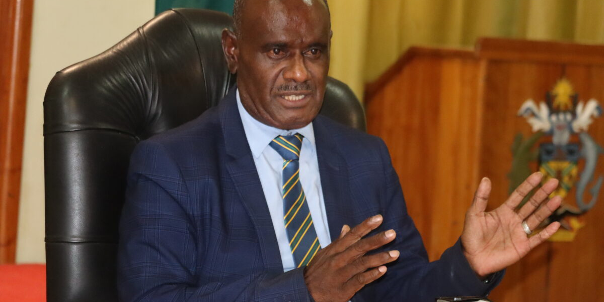MPs may get half a billion dollar each in CDF grants in 2025, a decision that will be nothing less than devastating
THE Government for National Unity and Transformation (GNUT) is believed to be considering beefing up the voter-focused Constituency Development Fund (CDF) to a record half a billion dollars in 2025, insiders have revealed.
The revelation comes amidst ever-increasing rise in the cost of living across the country, coupled with concerns over the failure of the government to account for the use of more than $300 million in Economic Stimulus Package [ESP] it introduced three years ago.
This means each of the 50 Members of Parliament will receive $10 million in CDF grants on behalf of his Constituency, come 2025. It also means the CDF budget item in 2025 will be $500 million.
The crippling ripple effect of such a decision will be nothing less than devastating, particularly in the urban centers. Prices of goods and services will soar well beyond the reach of ordinary citizens, according to sources consulted for this article.
Its effect on social services such as health and education is mind-boggling.
Parliament is due to meet on Monday – November 5 for its November Budget session. But there are indications Monday’s meeting would be adjourned to November 25 when the 2025 Budget would be debated and passed before the Christmas-New Year break.
The early adjournment to November 25, it is suggested, is to give Prime Minister Jeremiah Manele’s Government of National Unity and Transformation time to work on the proposed $500 million CDF budget for 2025.
“Presenting an acceptable CDF budget would be very tricky, especially at a time when low paid workers are actually living on a hand-to-mouth situation in order to feed their growing family,” one economist pointed out.
“The difficulty is where the money would come from at a time when the government is struggling to meet its statutory obligations such as salaries, water and electricity bills and the list goes on,” the man said.
There are ominous signs the country is in trouble.
In the Government revenue-raising sector, the Ministry of Forestry and Research is reportedly in trouble, unable to pay its $600, 000 power bill. The Office was temporary closed as no information could be accessed; angry members of the public told Solomon Star.
The underlying financial difficulties, faced by government, are beginning to show in a number of economic indicators – a decline in tax collection and the ability of the government to meet its obligations on time for example.
This is now spreading to other sectors in the same way cancer has invaded the entire body.
For example, a number of small companies, including security firms, have either s gone belly up or are on the way there. Many could no longer maintain their workforce because of the difficulties in meeting income and corporate tax obligations.
These firms which once employed up to 400 workers have also fallen behind NFP contributions on behalf of their employees. One security firm once had forty locations to patrol. Now, due to rising costs, it has only less than just 10 locations in Honiara
The banking sector too is feeling the heat.
Earlier this week, one of the four commercial banks limited its ATM withdrawals to just $400 per day. Whether this was due to a technical glitch is unclear.
When asked what this might mean, the economist said it represents a “deep-seated fundamental problem with the economy.”
“This must be attended to immediately or we are in deep trouble,” he said.
Compounding the unease in the country is the recent release of the audit report of more than $300 million in Economic Stimulus Package (ESP).
The ESP was intended to “grow the economy” but its distribution has largely been misused, ending up in the hands of cronies or companies owned by government politicians have established to take advantage of the “free” money.
Among other things, the Auditor General’s report showed the ESP funding was used by government to grease the palms of cronies as well as their own. Despite assurances of accounting for the use of the money, no report came from the Office of the Prime Minister.
The Office of the Auditor General is investigating.
“The intention [of the ESP] was good but the delivery was way, way off the mark,” one insider said of the ESP.
The bad economic news comes at a time when the nation’s debt is said to be hovering around SBD2 billion. Fifteen per cent of the annual budget is used to pay this growing debt.
The Government also faces crippling domestic debts ordered by the High Court, including the government’s $140 million buy-back scheme for prime land jointly owned by LSL and RIPEL.
Australian liquidators are threatening legal action in the event the government decides a different approach in settling this festering matter. Sydney-based Hall Chadwick liquidators are pushing for a prompt settlement via the DoCA transaction, which they argued “would see the SIG take control of LSL”.
As well, the government owes medical practitioner Dr Reginald Aipia more than $42 million in compensation for wrongful arrest, imprisonment and so on. The government also owes former members of the Solomon Islands paramilitary force who served on Bougainville during the so-called ethnic tension.
Representatives claimed the Government had agreed to pay each of the 431-strong Field Force members $300, 000 each – a total bill of almost $130 million.
By Alfred Sasako









